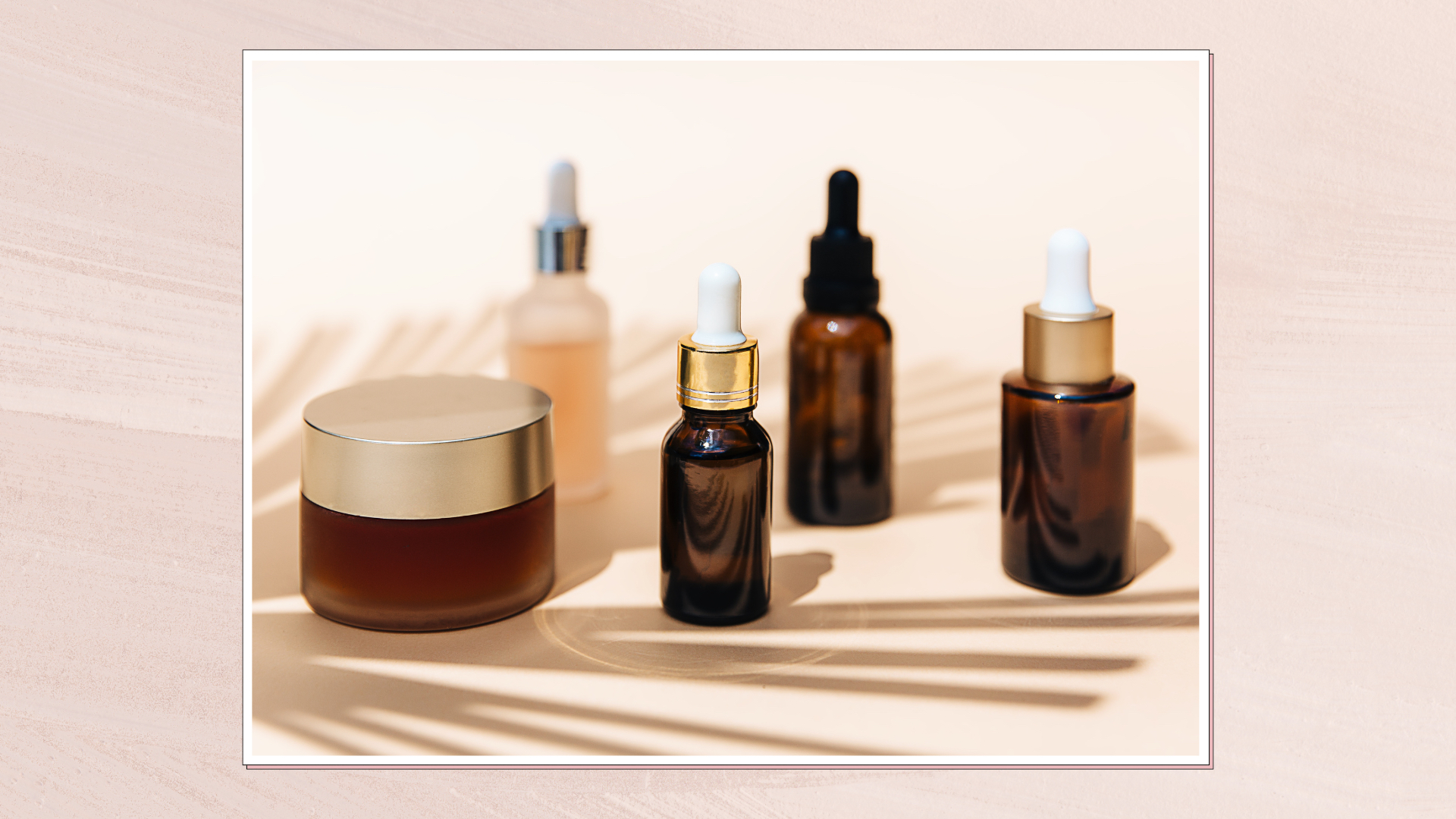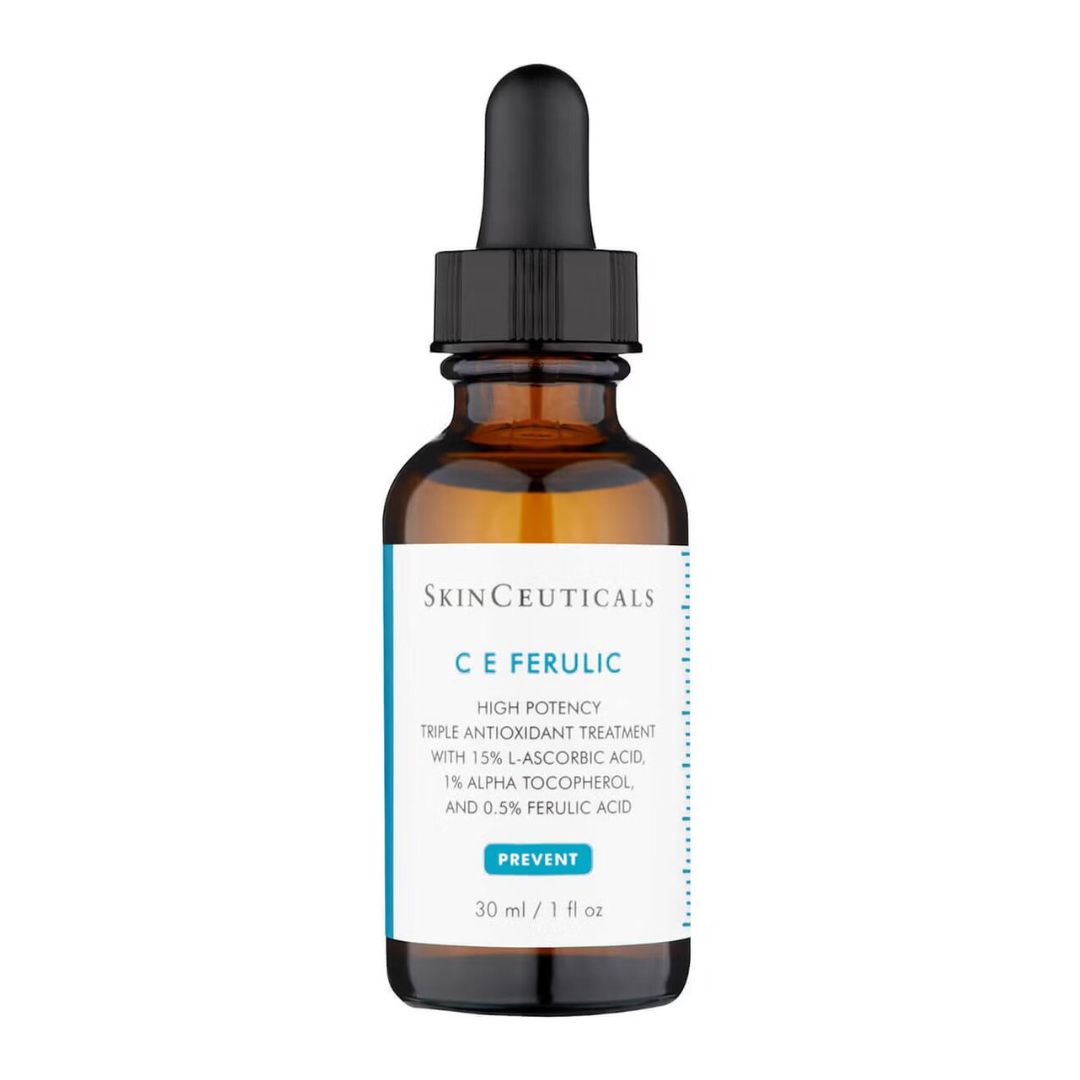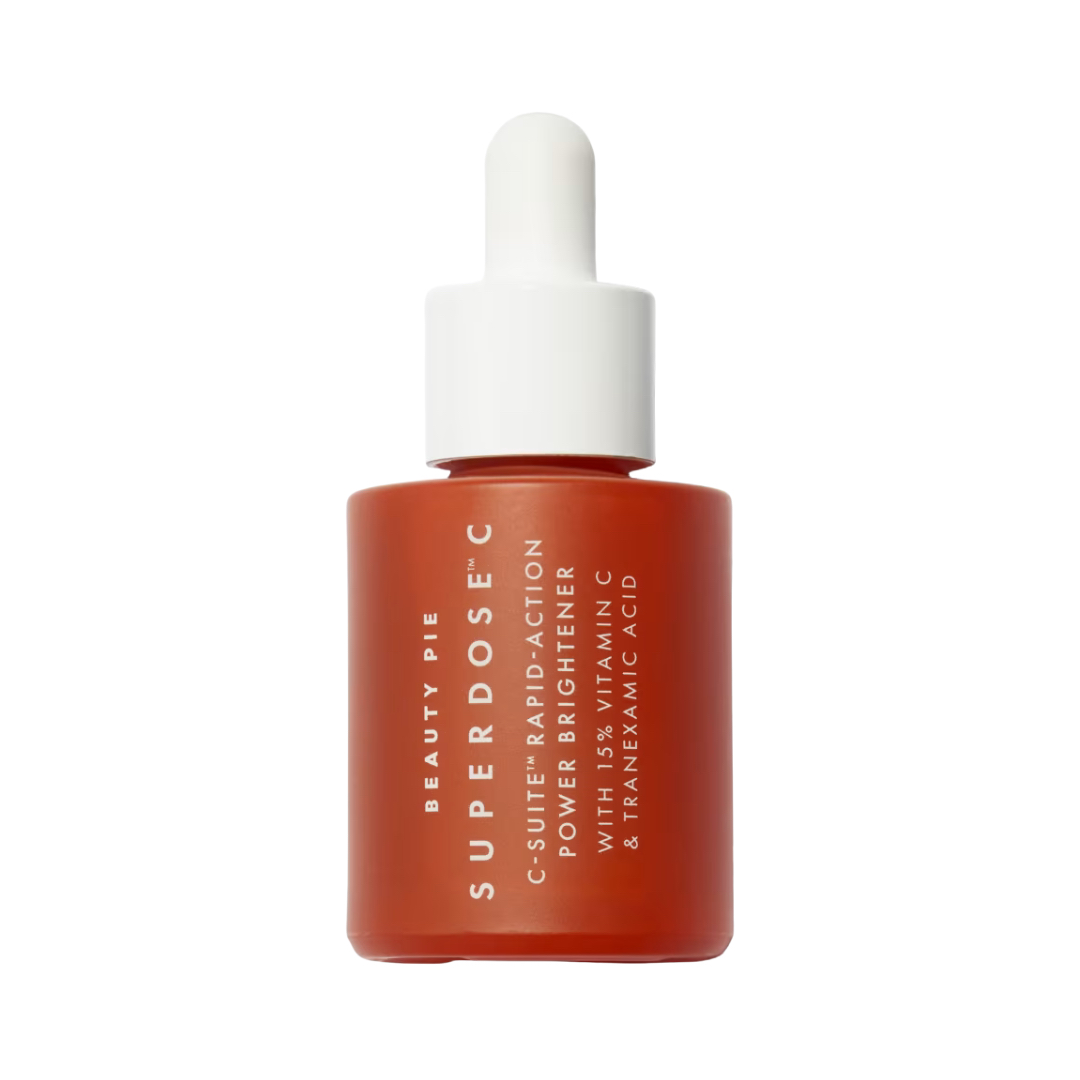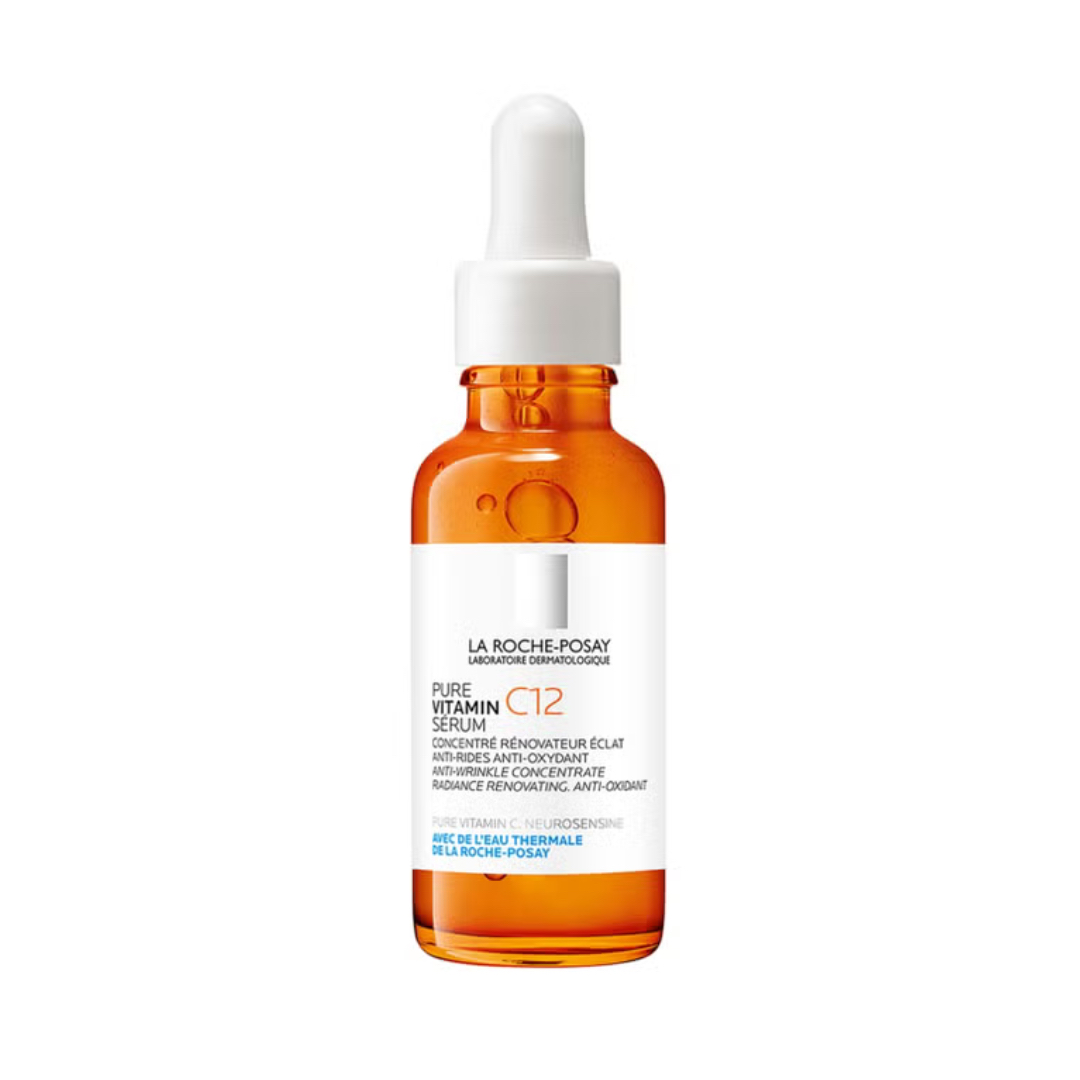What does vitamin C do for skin? Dermatologists explain its benefits in detail
Experts explain how vitamin C can be beneficial when used as part of your regular skincare routine


Along with SPF and retinoids, vitamin C is often touted as one of the most beneficial ingredients one can have in their skincare routine. But you may not be quite clued up on the how and be asking, what does vitamin C do for skin, exactly?
This ingredient is widely loved for its brightening and collagen-boosting powers. But while the best vitamin C serums can be game-changing additions to your regime, there are a few vitamin C mistakes to avoid when it comes to applying it. It's therefore important to be clued in on what the ingredient does, the order it should come into your routine and whether it even suits your skin's needs in the first place.
As beauty journalists, the woman&home team knows a thing or two about vitamin C and its many forms, but we've deferred to the experts to compile a thorough guide to its benefits. Ahead they’ve explained what using this popular active can do for your skin, plus answered some of the most common questions about vitamin C.
What does vitamin C do for skin? A guide to its benefits
What is vitamin C in skincare?
Vitamin C is an antioxidant and several different forms are used in skincare products like the best vitamin C serums. Pure vitamin C is known as L-ascorbic acid and often recommended as it's one of the most stable forms.
However, derivatives of vitamin C are also commonly used in skincare products and, depending on the concentration, can be a little gentler on sensitive skin. These include ascorbyl glucoside and ascorbyl palmitate, to name just a couple.

RRP: £165
An undoubtedly expensive vitamin C serum but regarded by many experts as one of the best, SkinCeuticals' potent CE Ferulic serum contains a powerful 15% concentration of L-ascorbic acid. Because of this it can be a little irritating on more sensitive skin types, but there's no denying that it's an industry icon.
What are the benefits of vitamin C for skin?
A large part of why vitamin C is so well-loved is its many benefits. First and foremost, because it’s an antioxidant, it offers some protection against environmental aggressors like free radicals, which results in oxidative stress that damages our skin (think fine lines, dullness, etc).
It also has a reputation for evening out the appearance of one’s skin. “Vitamin C is known for its ability to brighten the skin and improve overall complexion,” says consultant dermatologist Dr. Aiza Jamil. “It inhibits melanin production, helping to fade dark spots, hyperpigmentation and uneven skin tone.”
Sign up to our free daily email for the latest royal and entertainment news, interesting opinion, expert advice on styling and beauty trends, and no-nonsense guides to the health and wellness questions you want answered.
But that's not all. “Aside from brightening the skin and reducing the appearance of dark spots and hyperpigmentation, vitamin C also helps in collagen synthesis, which promotes skin elasticity and firmness,” adds Dr. Ifeoma Ejikeme, medical consultant, skin expert and founder of The Adonia Medical Clinic.
When and how often should you apply vitamin C?
Vitamin C is suitable for daily use within your skincare routine, but the time of day it's best suited may vary depending on the product in question. “Depending on the type of Vitamin C serum you have, the producers of the serum will either recommend morning or evening use," says consultant dermatologist Dr. Mary Sommerlad. "Vitamin C is a fantastic antioxidant so using it in the morning will help protect against the damage pollution and sun exposure can cause."
She continues: "Vitamin C is sometimes formulated with other anti-hyperpigmentation ingredients to help tackle hyperpigmentation; in this instance, it is best to use at night. As always, consistency is key when it comes to seeing the best results therefore daily use for an absolute minimum of eight weeks is important.”
Is vitamin C good for pigmentation?
Vitamin C is often linked to being beneficial for pigmentation, but there are a few things to know about its effects. As Dr. Sommerlad explains, “Vitamin C can help reduce hyperpigmentation by reversibly reducing the activity of the enzyme tyrosinase, which is responsible for making the pigment melanin. It also potentiates the benefits of sunscreen and reduces the impact of pollution and UV rays have on exacerbating hyperpigmentation."
However, the doctor stresses that it is not an effective treatment for hyperpigmentation. “Depending on the cause of your hyperpigmentation, medical management with prescription-strength agents, such as hydroquinone and tretinoin, are more effective," she explains. "Over the counter ingredients that can help fade dark marks include thiamidol – found in Eucerin’s anti-pigment range – and melasyl – found in La Roche-Posay and Garnier ranges – are highly effective.
"Vitamin C can be combined with a number of ingredients to boost its skin brightening and complexion evening effects, such as with retinoids, with niacinamide and with some liquid exfoliators," Dr. Sommerlad continues. "I recommend using a specifically-designed formula rather than layering yourself, as vitamin C is very mercurial and can be broken down becoming ineffective quickly if combined with the wrong concentration or blend of other ingredients.”
Is vitamin C irritating for skin?
Some people do find that their skin doesn't get on too well with vitamin C; as Dr. Sommerlad confirms: “Vitamin C, especially the L-ascorbic acid form above a concentration of 15%, can irritate the skin. This is more common in those with a history of sensitive or reactive skin, those with dry skin and those who are using (or overusing) exfoliants."
That's not to say you can't use any form of vitamin C, however. "For those who are sensitive, it is better to look for stabilised forms of vitamin C often referred to as vitamin Cg (ascorbyl glucoside) and THD (tetrahexyldecyl ascorbyl)," says Dr. Sommerlad.
Lucy is a UK-based beauty journalist who has written for titles including Marie Claire, Glamour and OK!, as well as contributing to woman&home. Her work covers everything from expert skin and haircare advice to beauty trends and reviews of the latest products. During her career she regularly speaks to the industry's leading hairdressers, dermatologists and make-up artists, has covered backstage at London Fashion Week and interviewed many a celeb about their beauty routine.


